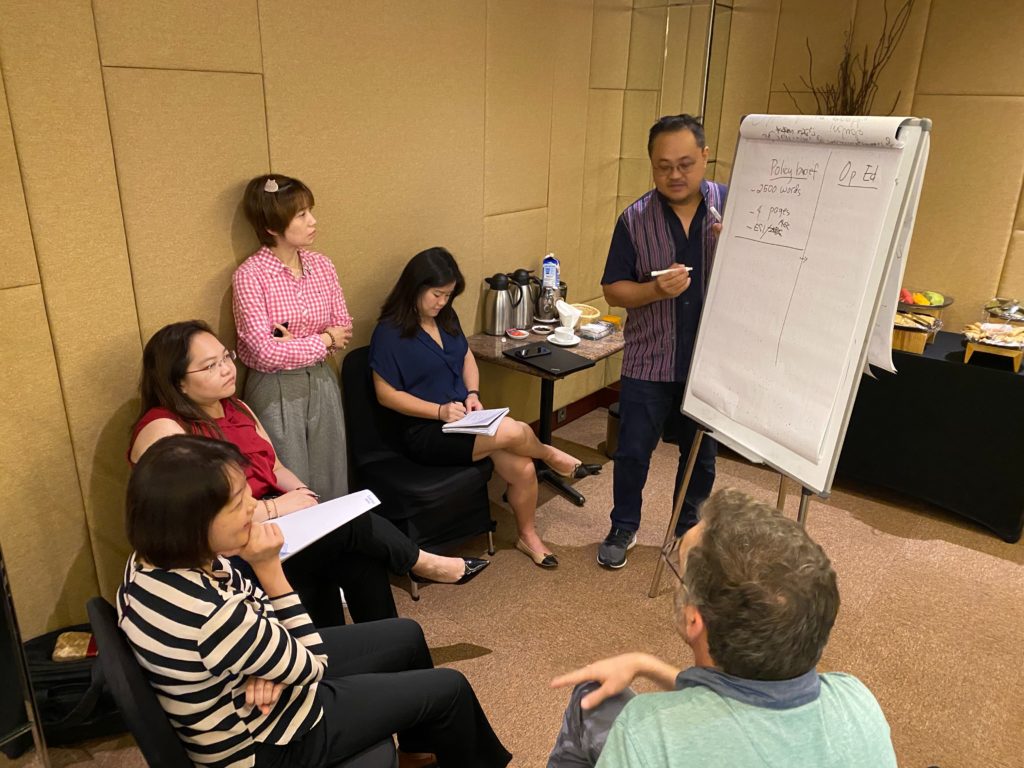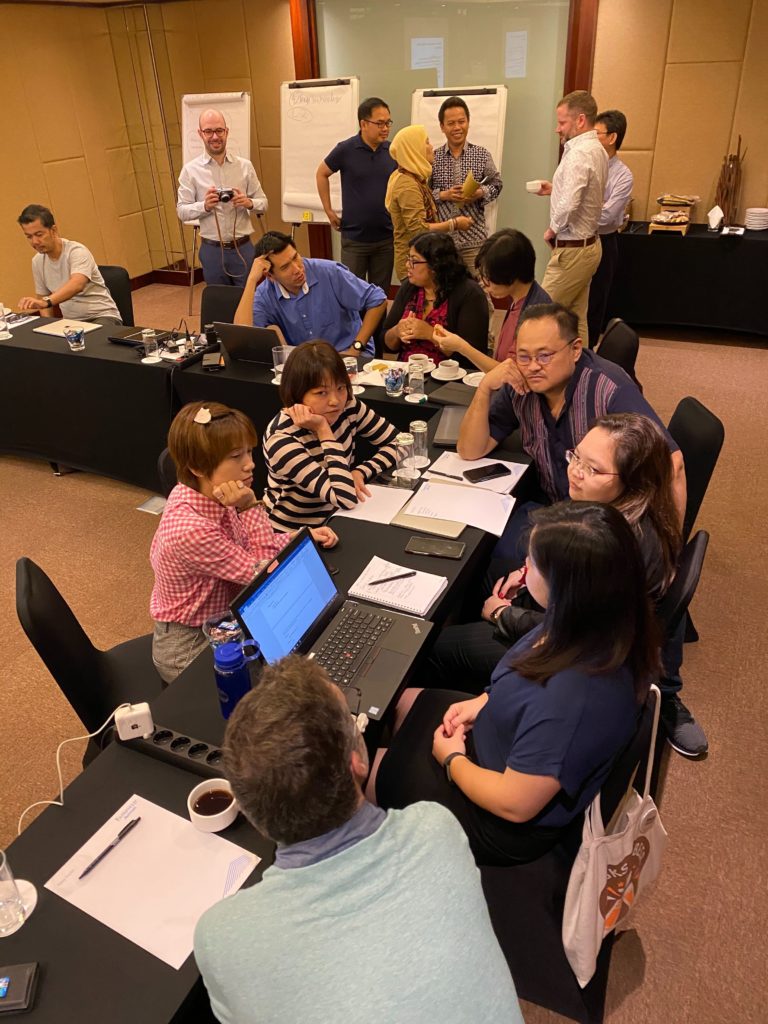[vc_row css=”.vc_custom_1565542682041{margin-right: 0px !important;margin-left: 0px !important;}”][vc_column css=”.vc_custom_1565542696462{padding-right: 0px !important;padding-left: 0px !important;}”][vc_single_image image=”3253″ img_size=”1365×300″ el_class=”banner-event”][/vc_column][/vc_row][vc_row css=”.vc_custom_1565542751414{margin-right: 0px !important;margin-left: 0px !important;}”][vc_column width=”1/4″][/vc_column][vc_column width=”1/2″ css=”.vc_custom_1565622195563{padding-bottom: 50px !important;}”][vc_column_text el_class=”title-event”][post_title][/vc_column_text][vc_column_text el_class=”date-venue-news”]Bali, 9 September 2019
[/vc_column_text][vc_column_text el_class=”text-par-news”]Bali, Indonesia – a workshop was held from 8 to 9 September 2019, which was jointly organized by the Hong Kong University of Science and Technology, Boston University, and the Solar Radiation Management Governance Initiative (SRMGI). The theme of the workshop was “Towards an Interdisciplinary Knowledge Community on the Critical Understanding of Emergent Climate System Intervention Technologies in Southeast Asia”.
This workshop seeded scholars and analysts with an initial and broad understanding and engagement in a critical and multidimensional study/research of climate system intervention technologies particularly carbon dioxide removal (CDR) and solar radiation management (SRM).
In the workshop, our Senior Research Analyst, Dr Hoy-Yen Chan. Dr Chan, representing ASEAN Centre for Energy (ACE) has taken this opportunity to learn important new knowledge and the potential of such technologies in addressing global warming of the climate system.
 Group Discussion on Climate System Intervention Technologies
Group Discussion on Climate System Intervention Technologies
The workshop was attended by 17 participants from Southeast Asia, working at the universities, government agencies, industry, non-profit and intergovernmental organizations. Besides listening to the lectures, one of the main activities was group discussion.
The participants were divided into four separate working groups which were 1) Technology and Engineering, 2) Policy and Governance, 3) Social study and Environment, and 4) Climate Modeling to discuss on the opportunities and challenges of CDR and SRM technologies
 The participants were divided into four separate working groups
The participants were divided into four separate working groups
Dr Chan has joined the Policy and Governance group and shared her insights within the ASEAN context. The outcome of the discussions from this working group has concluded that one of the effective ways to introduce such new knowledge to the policy-makers will be through the publication of policy briefs.
While other working groups have concluded with research proposals to study the potential and impact of SRM in reducing the warming, social acceptance, and the development of CDR technologies.
This workshop has formed a pioneer knowledge community in CDR and SRM, whereby the scholars may play a crucial role in participating in the discourses on climate system intervention technologies at the global level.
Not only in the fields of CDR and SRM, but this workshop also has been a very good platform for participants to build up the climate change research network for regional cooperation in the future. [/vc_column_text][vc_column_text el_class=”photo-caption-news”](AN/HYC) (Photo Credit: IOS)[/vc_column_text][/vc_column][vc_column width=”1/4″][/vc_column][/vc_row]










